Sören Holst
Theoretical Physicist, author and lecturer
I am a Theoretical Physicist at the Physics Department of Stockholm University, Fysikum. My main interests lie within the Theories of Relativity and fundamentals of Quantum Physics. I had my PhD in 2000 with a thesis concerning the General Theory of Relativity: Horizons and Time machines - global structures in locally trivial spacetimes.
Thought experiments
Thought experiments is a common way of reasoning within certain parts of Science and Philosophy. In spite of the fact that such arguments often involve quite unrealistic scenarios, they turn out to be surpricingly useful, not least within Physics.
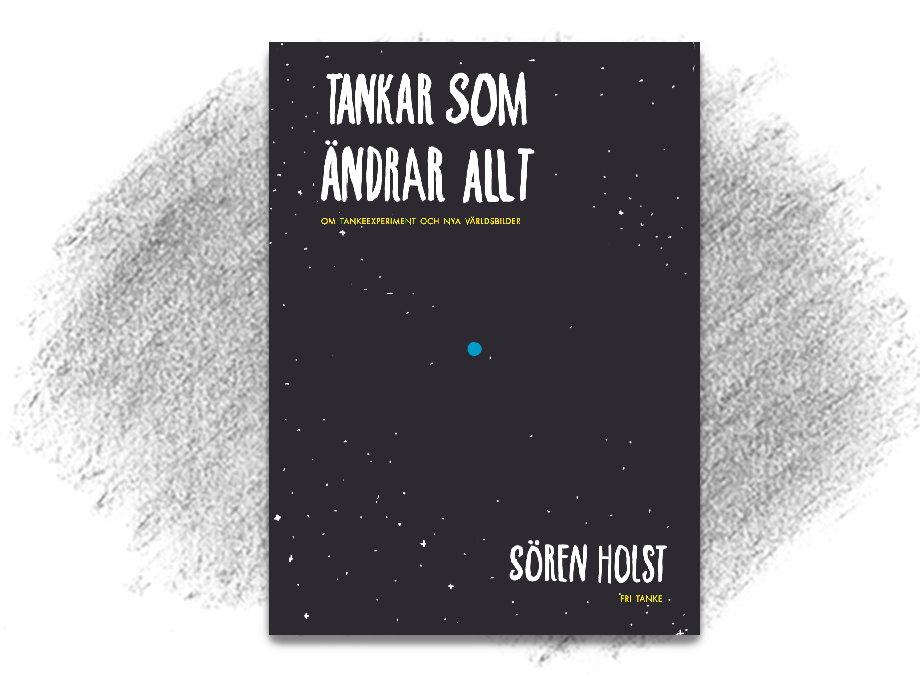
Book on thought experiments in Physics and Philosophy
My latest book (in Swedish) came in the fall 2012 at Fri Tanke förlag (Free Thought Publishers): Tankar som ändrar allt. Om tankeexperiment och nya världsbilder (Thoughts that change everything. On thought experiments and new world views).
The book discusses the role of thought experimentation in scientific advance, but also the way in which such reasoning can affect our views in existential issues. What is time? Do we have an "I" and, in that case, what does that mean? Is it always wrong to kill?
Read more about the book on the publisher's website.
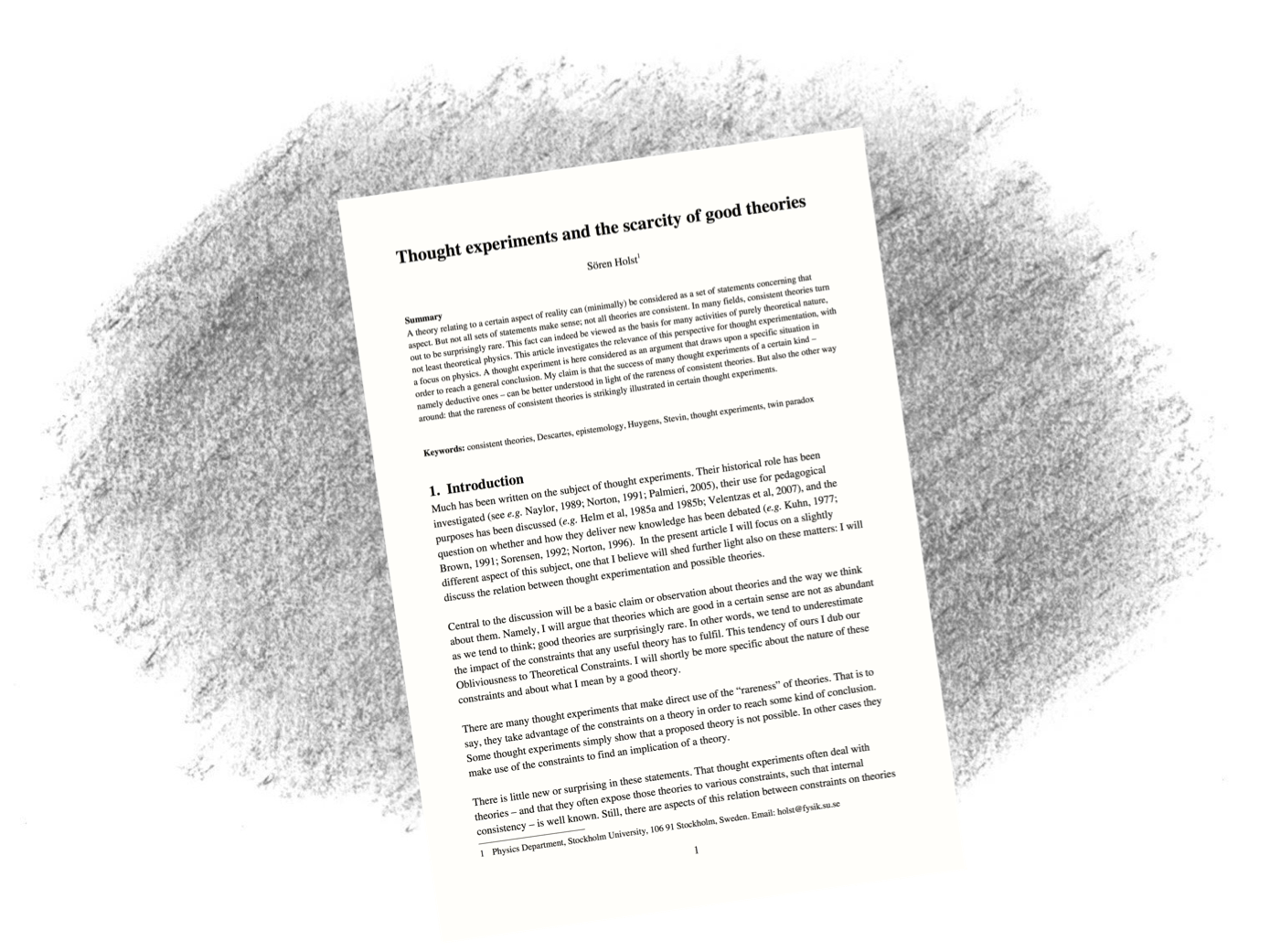
Why do thought experiments work?
How is it possible that one can learn things about the real world by performing unrealistic experiments in ones mind? This is an issue which has been debated among philosophers. My own thoughts on the matter is developed in this article:
Theory of Relativity
The Special and the General Theories of Relativity were both formulated by Albert Einstein more than hundred years ago, but are still part of the foundations of Modern Theoretical Physics.
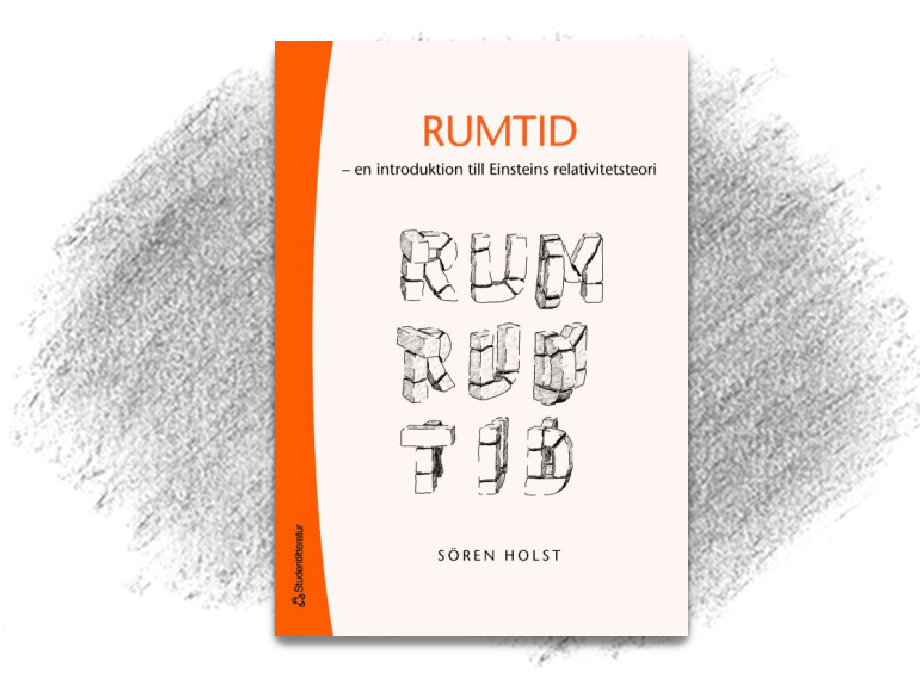
Book in Relativity
My book (in swedish) Rumtid - en introduktion till Einsteins relativitetsteori (Spacetime - an introduction to Einstein's Theory of Relativity) was published in the spring 2006.
This book takes a geometrical approach to Special Relativity, and the theory is explained using as little mathematics as possible. Click on the picture, and you will be directed to the homepage of the book. (Also only in Swedish.)
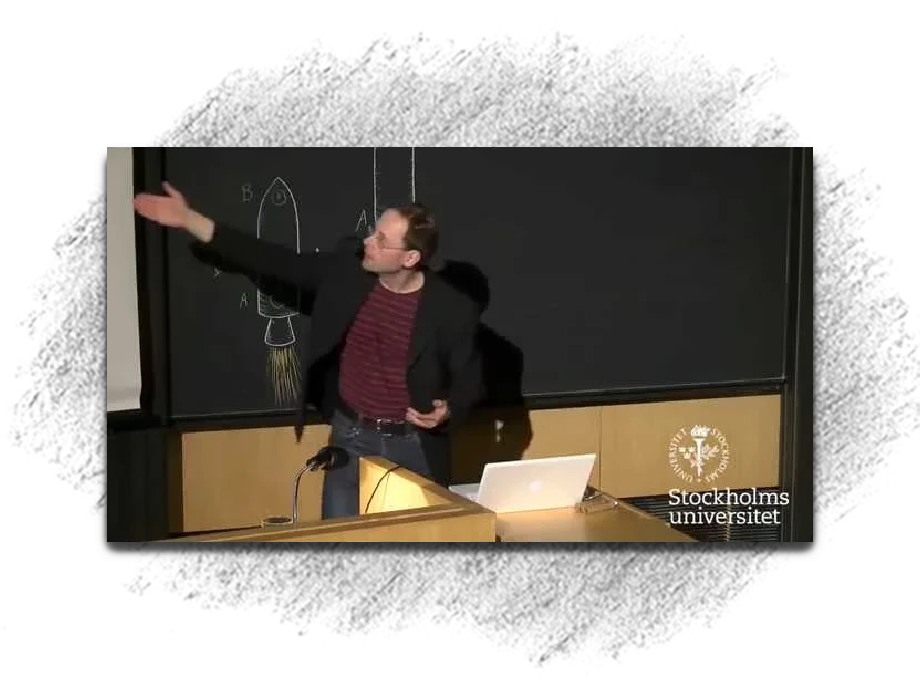
Popular lecture on Relativity (in Swedish)
What is it that keeps the Moon in orbit around the Earth, and what causes an apple to fall to the ground? A force? Not at all, says Einstein. The General Theory of Relativity challenges some of our intuitive notions about gravitation, and the nature of space and time.
The lecture is from March 19 of 2015, and was part in a series of open lectures at the Physics Department.
Teaching
I am teaching at the Bachelor Programme in Physics at the Physics Department at Stockholm University, and I also give summer courses for a broader audience.
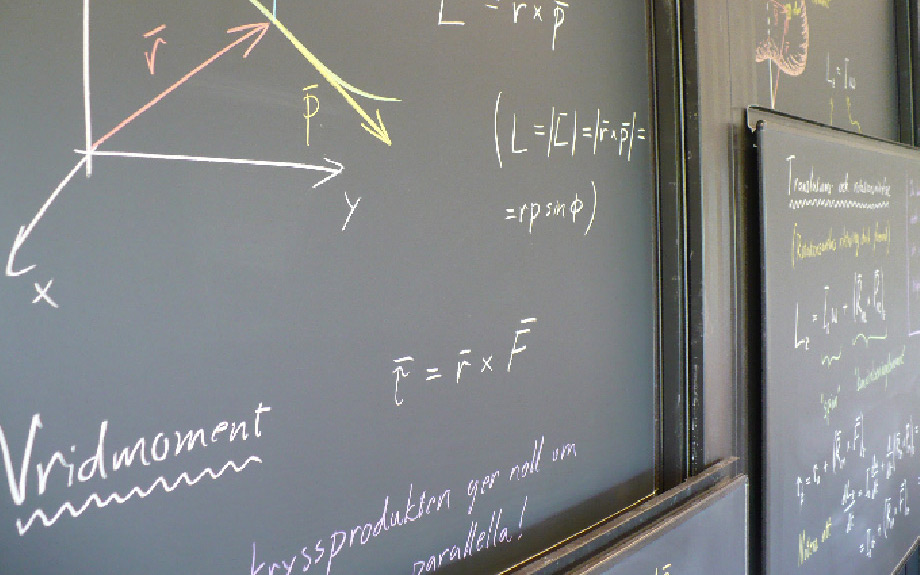
Courses
Hear are my current courses:
-
Mechanics I and II (Swedish webpage)
Parts of the course "Klassisk fysik (30 hp)" on the Bachelor's Programme.
-
General Relativity
Master's Programme course about Einstein's important discovery that gravity should not be understood as a force, but rather as a consequence of the curvature of space and time.
-
Summer course in Relativity (Swedish webpage)
This course explaines the Special Theory of Relativity using a non-mathematical approach. It also provides a short introduction to General Relativity.
-
Thought Experiments in Physics (Swedish webpage)
This course examines the role of thought experimentation in the history of Physics, from Galileo to Einstein and onwards. Using the method of thought experimentation as a springboard, we discuss several interesting areas within physics, such as Relativity and Quantum Physics. (This course is not given for the moment.)
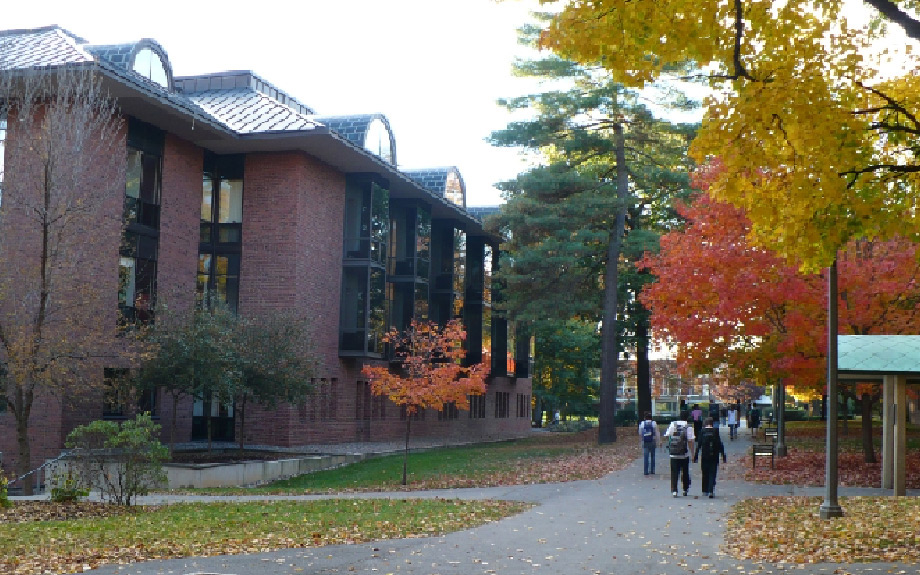
STINT Programme for Excellence in Teaching
The fall of 2007 I spent at Skidmore College in Saratoga Springs, New York, paid by the governmental foundation STINT, within their 'Programme for Excellence in Teaching'. Skidmore College is a so-called liberal arts college, and part of the purpose with my stay there was to learn more about the liberal arts tradition in the United States. I also gave a course in Special Relativity at the Physics Department at Skidmore College.
Teaching at an American college also provided some interesting insights into social life and society. Some of my prejudices were confirmed, others were proven wrong. In the report below I comment both on my impressions from the college and from the society at large.